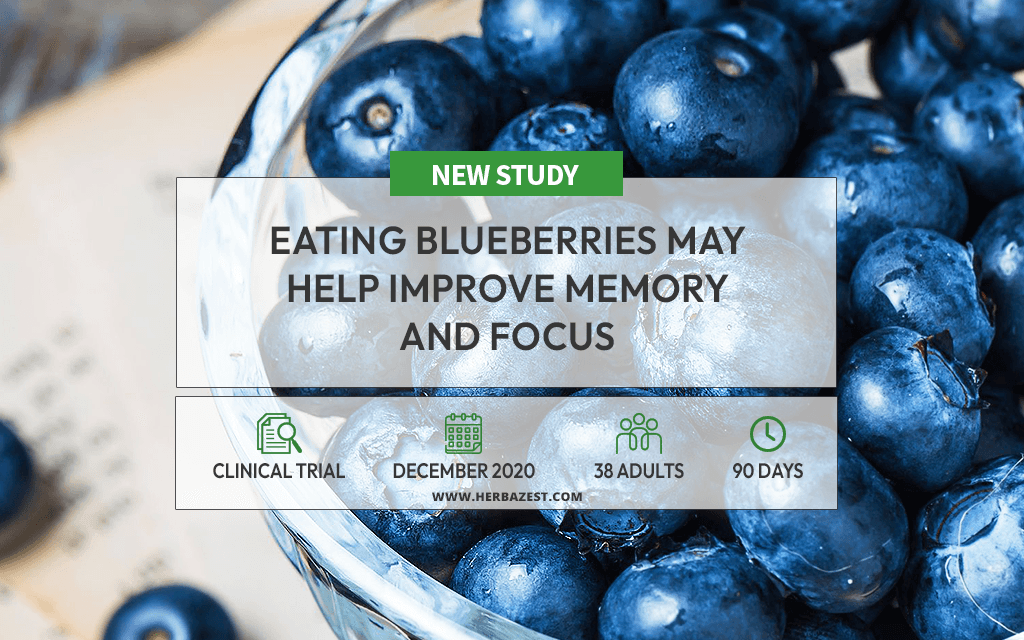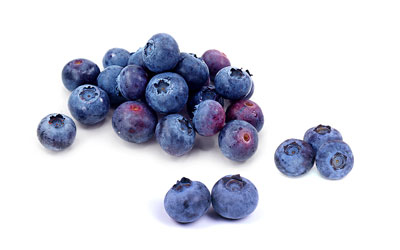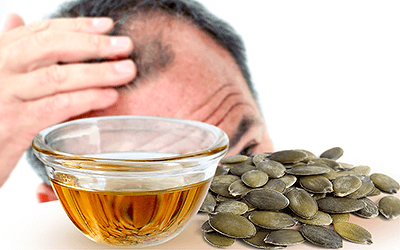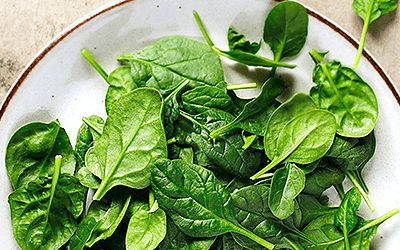Studies have linked blueberries to a variety of health benefits, including protecting against neurodegenerative disease.1 They are known to be packed with polyphenols, which are compounds with potent antioxidant properties.
However, it is not fully understood what happens to blueberry polyphenols in the body and how they affect various aspects of human health, such as cognitive functions.
This 2020 trial was conducted to study changes in the concentrations of blueberries' phenolic compounds and their role on cognition in healthy older adults.
The Study
For the purpose of this study, American researchers from Tufts University and Illinois Institute of Technology recruited 38 older adults, aged 60 to 75.
Participants were given powders to mix in water twice a day for 90 days. Those in the intervention group drank a daily dose of 24 grams of lyophilized blueberries (an equivalent of one cup of fresh blueberries), while those in the control group consumed an isocaloric placebo drink.
Participants had their blood samples collected and cognitive tests (e.g., the task- switching test, or TST, and the California Verbal Learning Test, or CVLT-II) administered several times throughout the trial. The results of this trial were published in the Royal Society of Chemistry journal.
The Results
Participants taking blueberries had significantly increased plasma amounts of several phenolic acids and anthocyanins.
In addition, researchers observed an association between such changed levels of plasma phenolics and improvements in cognition, mainly improved executive function and memory:
Changes in postprandial levels of ferulic acid-glucuronide, syringic acid, and malvidin-3-galactoside were associated with a change in task-switching errors on the TST.
Changes in postprandial levels of ferulic acid-glucuronide, syringic acid, and hippuric acid were associated with a change in repetition errors on the CVLT-II.
What Does this Mean?
As seen in the results of this trial, supplementation with blueberries offers cognitive benefits, mainly improvements in executive functions (like task switching) and memory.
Further studies are needed to better understand the effects of blueberry polyphenols on cognition and the benefits of their long-term supplementation.
Other herbs that offer benefits for brain health are walnuts, coffee, and turmeric.
Sources
- Royal Society of Chemistry, Blueberry phenolics are associated with cognitive enhancement in supplemented healthy older adults, 2021
Footnotes:
- Journal of Food Biochemistry. (2020). Understanding oxidants and antioxidants: Classical team with new players. Retrieved March 30, 2021 from https://pubmed.ncbi.nlm.nih.gov/31960481/





